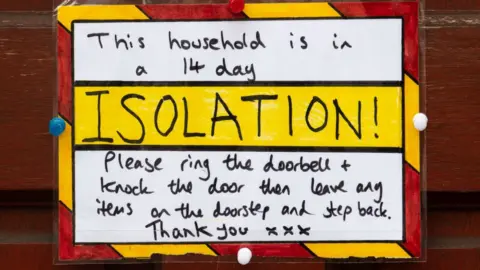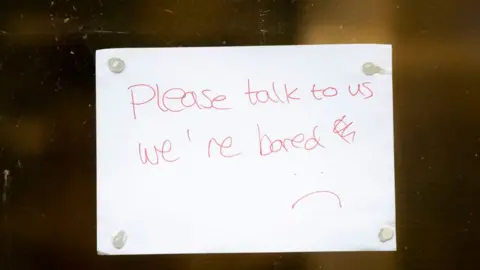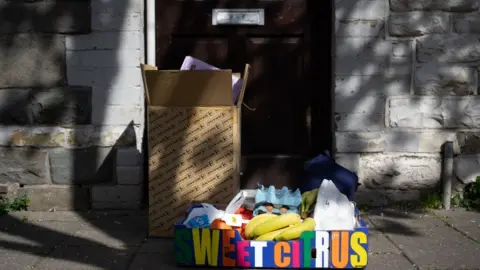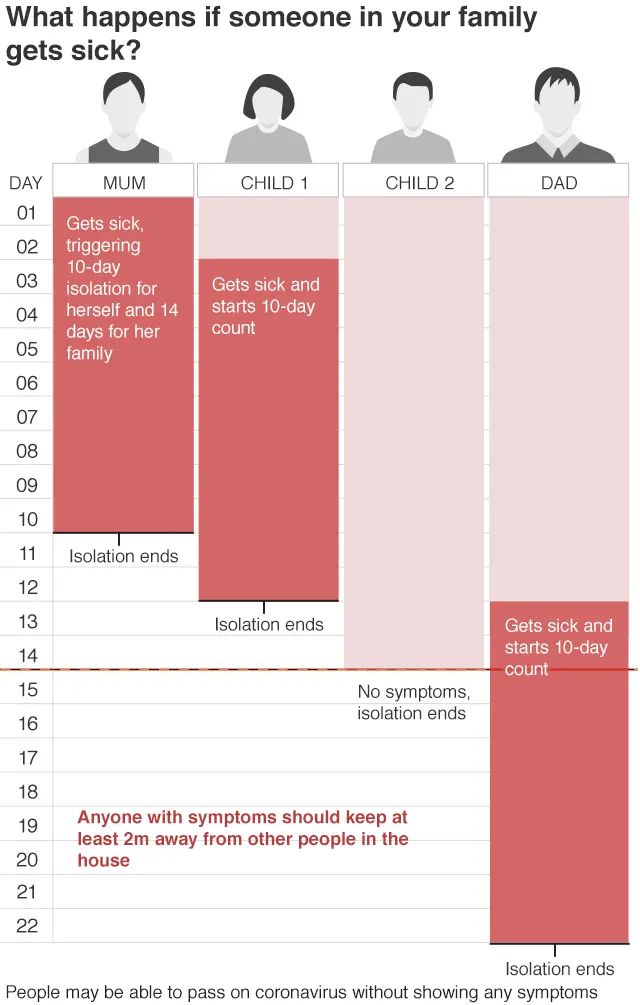Covid-19 self-isolation fines 'tend not to work'
 Getty Images
Getty ImagesFining people for breaking self-isolation "tends not to work," according to a government adviser.
Ann John said support, such as the new £500 payment for low earners, was more effective than "punitive measures."
The Welsh Government has announced a new legal requirement for people told to self-isolate by contact tracers.
First Minister Mark Drakeford said fines would be used "when we've run out of everything else".
The Welsh Government has not yet said how much the fines will be.
In England, refusing to self-isolate can lead to a fine of up to £10,000.
A study cited by the UK government's scientific advisory group Sage has suggested only about 20% of people in England with symptoms fully follow self-isolation guidance.
Officials believe compliance in Wales is similar.
Prof John, an independent member of the Welsh Government's technical advisory cell (TAC) which advises it on coronavirus, said compliance was low because isolation was "a hard thing to do".
 Getty Images
Getty Images"What we're seeing when we do surveys with people is that actually people want to comply, people want to do the right thing.
"For a lot of people when they're told to isolate, it's the first time it's happened.
"And for many it's the first time they've given it any real thought."
She welcomed the government's announcement that people on low incomes would receive a £500 payment when told to isolate, but said the amount should remain under review.
"I think it's a really hugely positive step to recognise the challenges that people have financially.
"There hasn't always been that recognition that people in insecure employment or in zero-hour contracts, that those choices can be harder for them to make than other sectors of society.
"So I think we've got to welcome that and then review it."
 Getty Images
Getty ImagesProf John, who chairs TAC's behavioural insights subgroup and also sits on the UK government's scientific pandemic influenza group on behaviours (SPI-B), is sceptical about the impact fines have.
"There's not a lot of evidence that enforcement works, there really, really isn't," she said.
"There is some evidence about legislation, but enforcement and fines tend not to work, people become very avoidant.
"I think what's better is that if we create those environments, messaging, so that people are supported in making their choices.
"We need to make sure that people know what's available in terms of support to them for their mental health, support to them for the practicalities like how do they get food, how do they get their medication, and financial support."


First Minister Mark Drakeford told BBC Wales Live fines would be a last resort.
"The main thing we use is the power of persuasion and the power of asking people to do the right thing.
"And for most people that works.
"There is a small minority of people who deliberately and knowingly break the rules and put themselves and others at risk.
"It's inevitable we have to have some penalty for people doing that, but it's not where we go to first.
"It's where we go to when we've run out of everything else."
Plaid Cymru's health spokesman Rhun ap Iorwerth said financial support of "up to £800" should be available.
"We wish to avoid fines and that is why we believe that those asked to self-isolate must be supported - including financially where that's needed.
The Welsh Conservatives have questioned why the £500 payments were not brought in sooner.
There are already fines in place in Wales for people who breach other coronavirus regulations.
People can be given a fixed penalty notice "for most types of breaches" and fined £60 for the first offence.
That fine is increased to £120 for a second offence and continues to double for repeated offences, up to a maximum of £1,920.
If prosecuted, however, a court can impose an unlimited fine.
For more on this story, watch BBC Wales Live on BBC One Wales on Wednesday at 22:45 GMT or on the BBC iPlayer